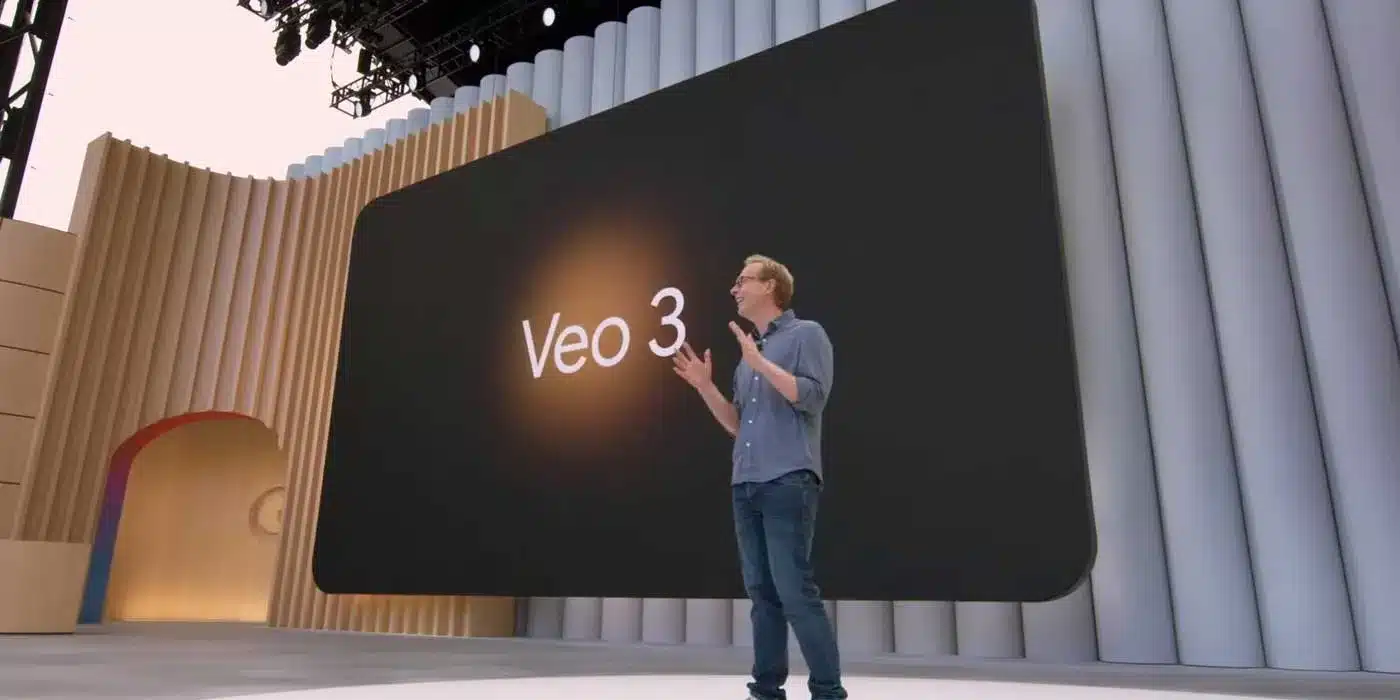Google’s Veo 3 has everyone talking about the future of AI video generation. But here’s the thing: whilst Google’s latest model can create stunning 4K videos with synchronized audio, most people are still waiting on the sidelines, dealing with waitlists, premium pricing, and geographic restrictions.
If you’re a marketer trying to scale content creation or an educator looking to engage students with dynamic visuals, you’ve probably wondered: “Is Veo 3 the game-changer I need, or should I explore alternatives that are actually available today?”
Let’s dive into the real-world applications of Veo 3, its limitations, and why solutions like vidBoard might be the smarter choice for professionals who need results now, not next quarter.
What Is Veo 3? Breaking Down Google’s AI Video Generator
Think of Veo 3 as having a Hollywood production team in your pocket, except it’s powered by artificial intelligence instead of caffeine-fueled creatives. Google’s third-generation video model can transform text prompts into professional-quality videos complete with dialogue, sound effects, and background music.
Unlike previous AI video tools that produced silent clips requiring separate audio production, Veo 3 generates synchronized audio alongside video content, eliminating hours of post-production work. It’s like having a director, cinematographer, and sound engineer rolled into one AI system.
The model supports resolutions up to 4K for short clips and maintains impressive physics simulation for realistic water flow, fabric movement, and lighting effects. Since its May 2025 launch, over 70 million videos have been created, proving there’s massive demand for accessible AI video creation.
But here’s where it gets interesting for marketers and educators: whilst Veo 3 represents cutting-edge technology, practical access remains limited. That’s where understanding real-world use cases and alternative solutions becomes crucial.
Key Features That Make Veo 3 Stand Out
Native Audio Generation
The standout feature differentiating Veo 3 from competitors is its ability to create audio that perfectly matches the visual content. The system achieves 99.5% lip-sync accuracy when generating dialogue, making it ideal for:
Product demonstrations with natural-sounding narration
Educational content with clear explanations
Marketing videos with engaging voiceovers
Training materials with step-by-step audio guidance
Advanced Camera Controls
Veo 3 offers sophisticated cinematography options that would typically require professional equipment:
Cinematic camera movements (pans, tilts, zooms)
Depth of field control for professional-looking focus effects
Multiple aspect ratios (16:9 for YouTube, 9:16 for TikTok, square for Instagram)
Dynamic lighting that responds to scene requirements
Physics-Based Realism
The model excels at rendering realistic physics, particularly useful for:
Scientific demonstrations showing fluid dynamics or material behaviour
Product showcases displaying how items move and interact
Environmental scenes with accurate weather and lighting effects
Real-World Limitations You Need to Know
Before diving into use cases, let’s address the elephant in the room. Veo 3 currently limits videos to 8 seconds maximum, which significantly impacts practical applications.
Access and Pricing Barriers:
Google AI Pro Plan costs $30/month with limited daily generations
Ultra Plan reaches $249.99/month for higher limits
API access costs $1.2 per 8-second generation at 720p resolution
Photo-to-video features unavailable in EEA, Switzerland, and UK
Professional Workflow Challenges:
3-5 minute generation times can slow content production
Integration with existing marketing tools requires technical setup
Veo 3 vs vidBoard: A Practical Comparison
| Feature | Veo 3 | vidBoard |
|---|---|---|
| Availability | Limited beta, geographic restrictions | Available globally today |
| Pricing | $30-$249.99/month + API costs | Affordable lifetime deals available |
| Video Length | Maximum 8 seconds | Extended video capabilities |
| Daily Limits | 5-125 videos depending on plan | Generous usage allowances |
| Audio Generation | Native sync audio | Professional voiceover options |
| Templates | Prompt-based creation | Ready-made templates for marketing/education |
| Learning Curve | Requires prompt engineering skills | User-friendly interface |
| Integration | Google ecosystem only | Works with popular marketing tools |
| Support | Limited beta support | Dedicated customer service |
Marketing Use Cases: Where Veo 3 Shines (And Where Alternatives Excel)
Social Media Content Creation
The Veo 3 Approach:
Marketers can generate eye-catching 8-second clips perfect for Instagram Stories, TikTok previews, or Twitter video ads. The native audio generation means you can create product teasers with synchronized sound effects and background music.
Example prompt: “Close-up shot of premium skincare cream being applied to smooth skin, soft morning lighting, gentle piano background music, professional product photography style”
The Reality Check:
With daily limits and $1.2 per generation costs, creating enough content for a comprehensive social media strategy becomes expensive quickly. Professional users report efficiency improvements of 73%, but cost constraints limit scalability.
The vidBoard Alternative:
vidBoard offers pre-designed templates specifically for social media marketing, allowing you to create multiple variations without per-generation costs. You can produce entire campaigns in one session rather than being limited by daily quotas.
Email Marketing Enhancement
Visual Email Campaigns:
8-second product demonstrations or service explanations can significantly boost email engagement rates. Veo 3’s ability to create professional-looking content makes it ideal for:
Product launch announcements with dynamic reveals
Service demonstrations showing before/after transformations
Event promotions with engaging venue or speaker previews
Newsletter headers with animated brand elements
Paid Advertising Creative
Short-Form Ad Content:
The 8-second limit actually works well for platforms like Google Ads, Facebook video ads, or YouTube bumper ads. Veo 3 can generate:
Attention-grabbing openers that stop scrolling
Product close-ups with compelling visual effects
Testimonial-style content (though character consistency remains challenging)
Brand storytelling moments that build emotional connection
Educational Use Cases: Transforming Learning Experiences
Concept Visualization
Science and STEM Education:
Veo 3 excels at creating visual demonstrations that would be impossible or expensive to film traditionally:
Physics concepts like wave propagation or electromagnetic fields
Chemical reactions showing molecular interactions
Biological processes such as cell division or ecosystem interactions
Mathematical visualizations of complex equations or geometric principles
The Educator’s Challenge:
While these applications sound revolutionary, the 8-second limit means complex concepts require multiple clips. Additionally, professional educators need consistent characters and environments for course coherence.
Language Learning Applications
Immersive Scenarios:
The native audio generation makes Veo 3 particularly valuable for language education:
Conversational scenarios in realistic settings
Pronunciation demonstrations with visual lip-sync cues
Cultural context videos showing appropriate gestures and expressions
Interactive dialogue practice with consistent character responses
Historical and Cultural Education
Bringing History to Life:
Veo 3 can recreate historical scenes or cultural practices that would otherwise require expensive location shooting or animation:
Historical events with period-appropriate costumes and settings
Cultural celebrations from different regions and time periods
Archaeological reconstructions of ancient sites and practices
Literary scene adaptations making classic texts more engaging
Professional Services: Beyond Marketing and Education
Healthcare and Medical Training
Patient Education:
Medical professionals can use Veo 3 to create clear, visual explanations of procedures or conditions:
Surgical procedure overviews without graphic content
Medication instructions with visual dosage guides
Rehabilitation exercises with proper form demonstrations
Anatomy explanations with detailed visual references
Legal and Professional Services
Client Communication:
Law firms, financial advisors, and consultants can leverage AI video for:
Service explanations that simplify complex processes
Client onboarding with welcoming, professional content
FAQ responses that address common concerns visually
Testimonial creation (within character consistency limitations)
Real Estate and Property
Virtual Property Tours:
Real estate professionals can create compelling property previews:
Exterior walkthroughs showcasing curb appeal
Interior highlights focusing on key selling points
Neighbourhood context showing local amenities
Investment potential with visual market data presentation
Mastering Veo 3: Prompt Engineering for Best Results
Effective Prompt Structure
The Formula That Works:
[Shot Type] + [Subject] + [Action] + [Setting] + [Lighting] + [Audio Style] + [Mood/Style]
Example Breakdown:
“Medium shot of confident businesswoman presenting quarterly results in modern conference room with soft natural lighting, professional presentation audio, corporate documentary style”
Common Prompt Mistakes to Avoid
Being too vague: “Make a video about marketing” vs “Close-up of smartphone displaying social media analytics dashboard”
Ignoring audio requirements: Always specify desired sound style
Overcomplicating scenes: Keep actions simple within the 8-second limit
Neglecting aspect ratio: Specify 16:9, 9:16, or square based on platform needs
Pro Tips for Better Results
Lighting Specifications:
“Golden hour lighting” for warm, professional feels
“Studio lighting” for clean, corporate aesthetics
“Natural window light” for authentic, documentary styles
“Dramatic spotlight” for emphasis and focus
Camera Movement Language:
“Slow push-in” for dramatic reveals
“Gentle pan” for environmental context
“Static shot” for clear information delivery
“Slight tilt up” for aspirational messaging
The Future of AI Video: What’s Coming Next
Technical Improvements on the Horizon
The AI video generation market is projected to reach $2.56 billion by 2032 with a 19.5% annual growth rate. This explosive growth suggests significant improvements coming:
Extended Duration Capabilities:
Industry experts predict video length limits will increase dramatically, potentially reaching 60+ seconds within the next 18 months. This would transform Veo 3 from a clip generator into a comprehensive video production tool.
Improved Character Consistency:
Future versions will likely address the current challenge of maintaining consistent characters across scenes, enabling true narrative video creation.
Real-Time Generation:
Processing times are expected to drop from minutes to seconds, making AI video generation truly interactive for live content creation.
Integration and Accessibility Improvements
Broader Platform Integration:
Expect seamless integration with popular marketing platforms like HubSpot, Mailchimp, and social media management tools. This will eliminate the current technical barriers limiting professional adoption.
Democratized Access:
As competition increases, pricing models will likely become more accessible to individual creators and small businesses, moving away from enterprise-focused pricing.
Enhanced Collaboration Features:
Future versions will probably include team collaboration tools, version control, and approval workflows essential for professional marketing teams.
The Reality of Waiting vs Acting Today
Here’s the uncomfortable truth: whilst Veo 3 represents the future of AI video generation, that future isn’t equally accessible to everyone right now. If you’re a marketer facing quarterly targets or an educator preparing for the next semester, waiting for perfect technology means missing current opportunities.
The “Good Enough” Philosophy:
Sometimes the best solution isn’t the most advanced one; it’s the one that’s available, affordable, and meets your immediate needs. vidBoard might not generate native audio with 99.5% lip-sync accuracy, but it can help you create professional marketing videos today without waitlists or geographic restrictions.
Making the Smart Choice: Veo 3 or Alternative Solutions
Choose Veo 3 If:
You need cutting-edge audio generation and have the budget for premium pricing
8-second clips meet your content strategy (social media teasers, ad openers)
You’re comfortable with limited daily generations and longer production times
You have technical expertise for prompt engineering and API integration
Geographic restrictions don’t affect your location or target audience
Choose vidBoard If:
You need consistent content production without daily limits or per-generation costs
Budget-friendly solutions are essential for your business model
User-friendly interfaces matter more than cutting-edge features
You require immediate availability without waitlists or beta access requirements
Integration with existing marketing workflows is a priority
Hybrid Approach:
Many smart marketers and educators are taking a hybrid approach:
Experiment with Veo 3 for high-impact, premium content pieces
Use vidBoard or similar tools for consistent, volume content creation
Develop skills with accessible tools while monitoring advanced options
Plan migration strategies as advanced tools become more accessible
Getting Started: Your Next Steps
If You Choose to Explore Veo 3:
Start with Google AI Pro to test capabilities before committing to higher tiers
Focus on use cases that benefit from the 8-second format
Develop prompt engineering skills through experimentation
Calculate total cost of ownership including API fees and generation limits
Plan content strategies around current limitations
If You Choose vidBoard:
Explore available templates that match your industry and use cases
Take advantage of lifetime deals or trial periods to assess fit
Integrate with existing workflows and marketing tools
Scale content production without per-generation cost concerns
Stay informed about feature updates and new capabilities
Building Your AI Video Strategy
Start Small, Think Big:
Begin with one specific use case rather than trying to revolutionize your entire content strategy overnight. Whether it’s social media teasers, email header videos, or educational concept explanations, focus on mastering one application before expanding.
Measure and Optimize:
Track performance metrics for AI-generated content compared to traditional video production. Look at engagement rates, production time savings, and cost per video to justify your approach and identify optimization opportunities.
Stay Adaptable:
The AI video landscape changes rapidly. What’s true today about pricing, features, or availability might shift significantly in six months. Build flexibility into your strategy and budget for potential tool migrations.
Conclusion: The Smart Path Forward
Veo 3 represents a remarkable leap forward in AI video generation, offering capabilities that seemed impossible just two years ago. With over 70 million videos created since launch and enterprise adoption growing rapidly, it’s clear this technology has found product-market fit.
However, the gap between cutting-edge capability and practical accessibility remains significant. For marketers and educators who need results today, not tomorrow, solutions like vidBoard offer immediate value without the barriers that currently limit Veo 3 adoption.
The smartest approach? Start creating video content now with accessible tools whilst keeping an eye on advanced options like Veo 3. As the technology landscape evolves and barriers decrease, you’ll be positioned to upgrade seamlessly while competitors are still figuring out their first video strategy.
Ready to start your AI video journey today? Try vidBoard and create professional marketing videos without waitlists, geographic restrictions, or premium pricing. Your content strategy can’t wait for perfect technology, but it can benefit from practical solutions available right now.
Frequently Asked Questions
Is Veo 3 available to the public?
Veo 3 is available through Google AI Pro ($30/month) and Ultra ($249.99/month) plans, but with geographic restrictions and daily generation limits. It’s not freely available and requires subscription access through Google’s Gemini platform.
Can I use Veo 3 on my phone?
Yes, Veo 3 is accessible through Google’s Gemini mobile app for subscribers. However, the interface is optimized for simple text prompts rather than advanced video production workflows that might be easier on desktop platforms.
What is the best AI video generator?
The “best” depends on your needs. Veo 3 offers cutting-edge features but with access limitations. Alternatives like vidBoard, Runway ML, and Pika Labs each excel in different areas. For immediate availability and professional templates, vidBoard often provides better value for marketers and educators.
What is the difference between Veo 3 and Veo 3 5G?
Veo 3 5G isn’t a separate model. You might be thinking of “Veo 3 Fast,” which generates videos 2x faster than standard Veo 3 but at 720p resolution instead of up to 4K. Veo 3 Fast is designed for rapid content creation where speed matters more than maximum quality.
Can ChatGPT generate videos?
ChatGPT itself cannot generate videos, but OpenAI has announced Sora, their video generation model. However, Sora has limited public availability. For immediate video generation needs, dedicated platforms like vidBoard or publicly accessible tools provide more practical solutions.
Can you go live on social media with Veo Cam 3?
Veo Cam 3 appears to be confusion with Google’s Veo 3 AI model. Veo 3 generates videos from text prompts; it doesn’t provide live streaming capabilities. For live social media content, you’ll need traditional streaming tools or cameras, not AI video generation models.
Is Veo 3 free for students?
Google hasn’t announced specific student pricing for Veo 3. Access requires Google AI Pro or Ultra subscriptions at standard pricing. Students looking for free AI video tools should explore alternatives with educational discounts or free tiers specifically designed for academic use.
How long can a Veo 3 video be?
Currently, Veo 3 videos are limited to 8 seconds maximum. This constraint significantly impacts use cases requiring longer content, making it more suitable for social media clips, advertisements, or short demonstrations rather than comprehensive educational videos or marketing presentations.
How many credits does Veo 3 use?
Veo 3 operates on subscription plans rather than credit systems. Google AI Pro allows limited daily generations, while Ultra provides higher limits. API access costs $1.2 per 8-second generation at 720p resolution, with pricing varying by resolution and duration.
How much does Veo 3 cost per minute?
Since Veo 3 is limited to 8-second videos, calculating per-minute costs requires multiple generations. At API pricing of $1.2 per 8-second clip, creating one minute of content would cost approximately $9 (7.5 clips × $1.2), making it expensive for longer content creation.
























